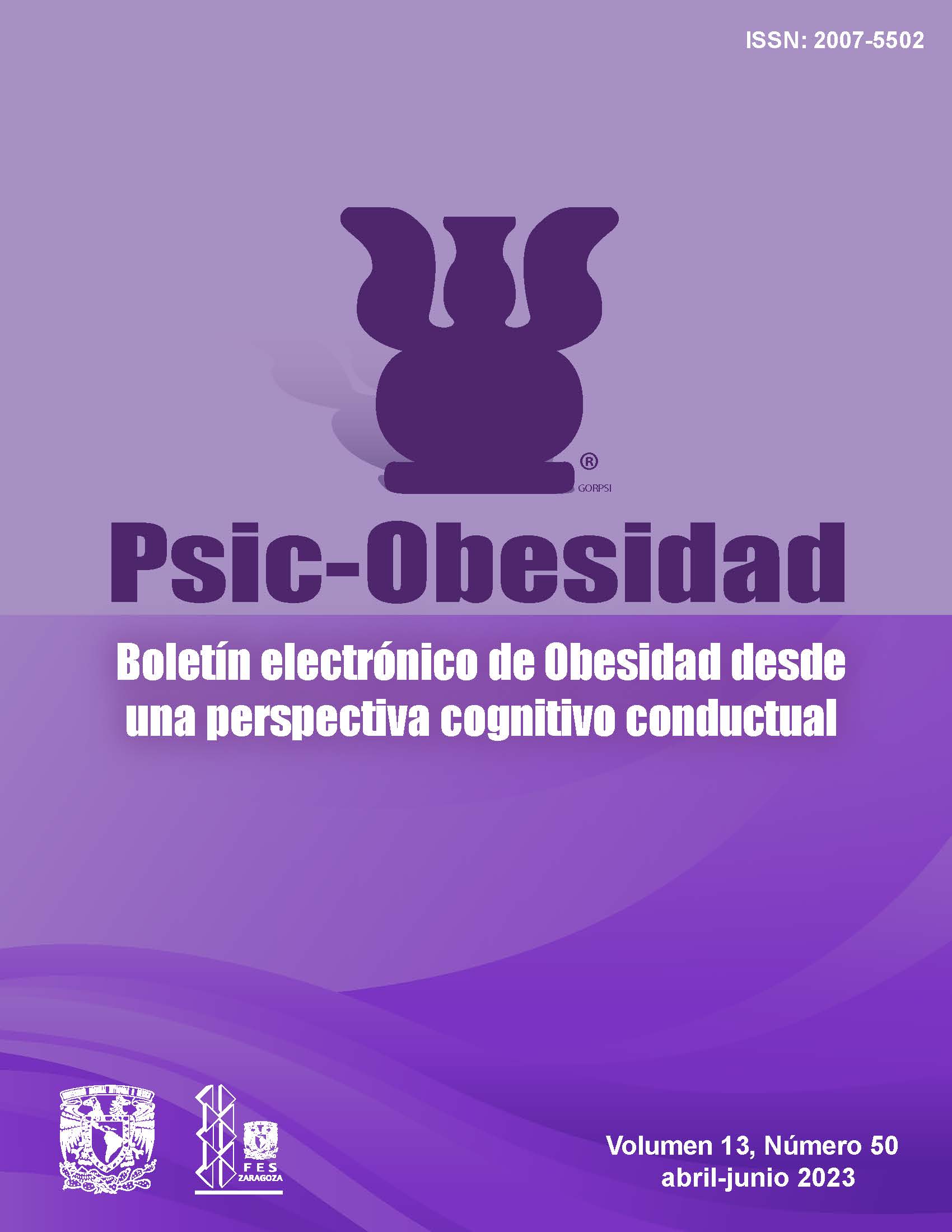History of body weight in childhood obesity
Main Article Content
Abstract
The public health issue of chronic degenerative diseases at national level is obesity, where childhood obesity transcends borders and occupies the first place worldwide and as a chronic degenerative health problem constitutes the greatest threat to health care systems, to society in the detriment of life expectancy and to the individual in particular by altering their quality of life. The body weight history is used as a subgenre of life history, which is the use of personal documents for the purpose of communication in personal reference to lifestyle in the ontological development in specific aspects such as obesity. This allows an approach to the process of interaction and cultural construction between the biography of the agent, the institution and social structure of the person who performs it, and to approach the subjective or psychological elements with a certain identity and habitus. The objective of this work was the identification of the body weight condition during the growth and development of the individual through self-description in obese children and adolescents. A semi-structured interview was elaborated. The analysis of the data makes reference to the qualitative level by content analysis, descriptors and narrative explanation of the origin and maintenance of obesity according to the agents themselves. The interaction of the family and minors can collaborate in the care and prevention of childhood (and adult) obesity, with affection and attention to quality of life.
Downloads
Article Details
References
Aceves-Lozano, J. E. (1994). Práctica y estilos de investigación en la historia oral contemporánea. Historia y Fuente Oral, 12, 143-150. https://www.culturascontemporaneas.com/culturascontemporaneas/libros/Libro_Historia_Oral.pdf
American Psychiatric Association. (2000). Diagnostic and Statistical Manual of Mental Disorders, (DSM IV-TR). doi:10.1176/appi.books.9780890423349
American Psychiatric Association. (2013). Diagnostic and Statistical Manual of Mental Disorders, (DSM V). Editorial Médica Panamericana.
Arjona-Garrido, Á. y Checa-Olmos, J. C. (1998). Las historias de vida como método de acercamiento a la realidad social. Gazeta de Antropología, 14(10), 1-14. http://hdl.handle.net/10481/7548
Arvizu, J. (13 de abril de 2010). Aprueban diputados ley contra obesidad infantil. Periódico El universal. http://www.eluniversal.com.mx/notas/672451.html
Bourdieu, P. (1979). Les trois états du capital culturel. Visor.
Bourdieu, P. (1989). La ilusión biográfica, historia y fuente oral. Visor.
Consejo Alimentario de Colombia (C.A.C) (2001). La obesidad como problema de Salud Pública. http://www.encolombia.com/adipocito4299-obesidad5.htm
Couvillion, L. N. (2002). Obesidad y patrones alimenticios infantiles. Leaven.
Guillén-Riebeling, R. S. (2007). Evaluación Multimodal ERIC-PSIC. FES Zaragoza, UNAM.
Guillén-Riebeling, R. S. (2010). III Congreso Nacional de Medicina Social y Salud Colectiva, 25 al 27 de noviembre de 2010, CUCS, Guadalajara, Jalisco, México.
Kazdin, E. A. (1975). Modificación de conducta y sus aplicaciones prácticas. Manual Moderno.
Mahoney, M. J. (1974). Cognition and behavior modification. Ballinger Publishing.
Niemeyer, R. y Mahoney, M. (1998). Constructivismo en psicoterapia. Paidós.
Rankin, J. W. (2003). Pierda la Grasa, Mantenga los Músculos: Pérdida de Peso Óptima para Atletas. PubliCE Standard, 141, 1-7. https://g-se.com/pierda-la-grasa-mantenga-los-musculos-perdida-de-peso-ptima-para-atletas-141-sa-z57cfb27108904
Rim, C. D. y Masters, J. C. (1980). Terapia de la conducta. Trillas.
Rivera, O., Esquivel, F. y Lucio, E. (1987). Integración de Estudios Psicológicos. Editorial Diana.
Whaley, D. L. (1978). Psicología del comportamiento. Fontanela.
